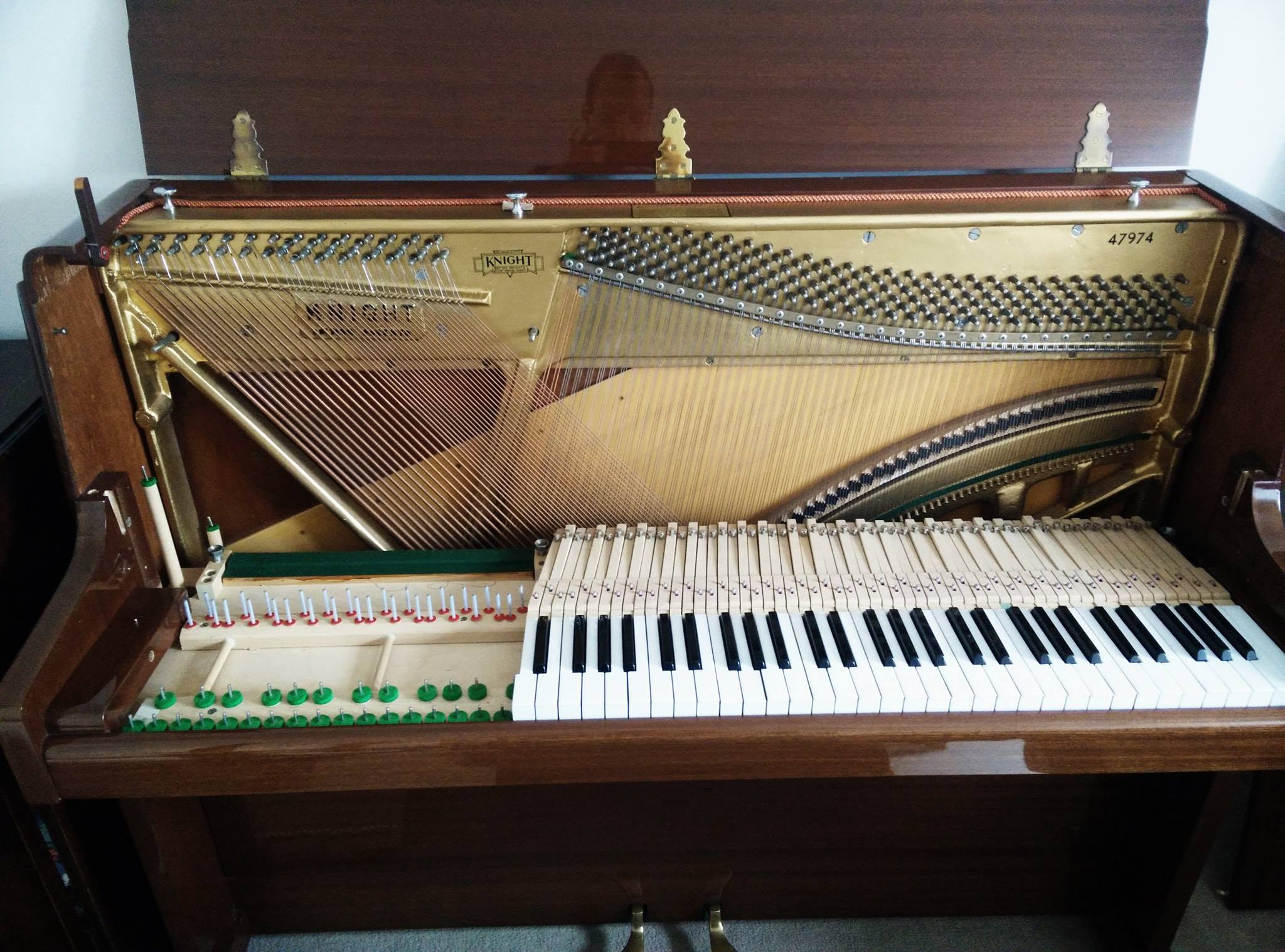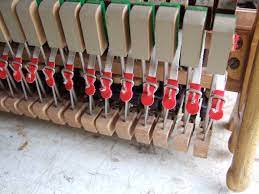A relatively quick and easy way that a piano tuner can improve the piano’s performance is to ensure the key pins are as clean and slippery as possible. If all the key pins are polished, smooth and slippery the piano keys will glide as effectively as possible which greatly improves the feel and playability of the piano.

Before lubricating the bushings, key pins must to be cleaned of any rust or grime. A bit of surface rust is no big deal – some steel wool can clean that off quite effectively. If they’re heavily rusted or showing signs of corrosion then they need to be replaced – the Leeds piano tuner will give you a quote before continuing his work.
One the Leeds piano tuner is satisfied with the condition of every key pin, then the key pins and the key bushings will be lubricated. Every piano tuner has their preference on what lubricant to apply (Protek CLP, PTFE or Teflon), but the Leeds piano tuner prefers protek for its durable and long lasting nature. In some extreme instances, Protek or PTFE in liquid form on the key pins and teflon powder on every key bushing has proven to be the best combination, if the piano had many sticking keys (a separate though related issue) or squeaks beforehand.
If you have had a piano for many years and this has never been performed by a Leeds piano tuner, your piano could well benefit from this service. Judging by the condition of many older pianos, the key pins have been neglected for the pianos whole life which can be an unfortunate sight to behold.
